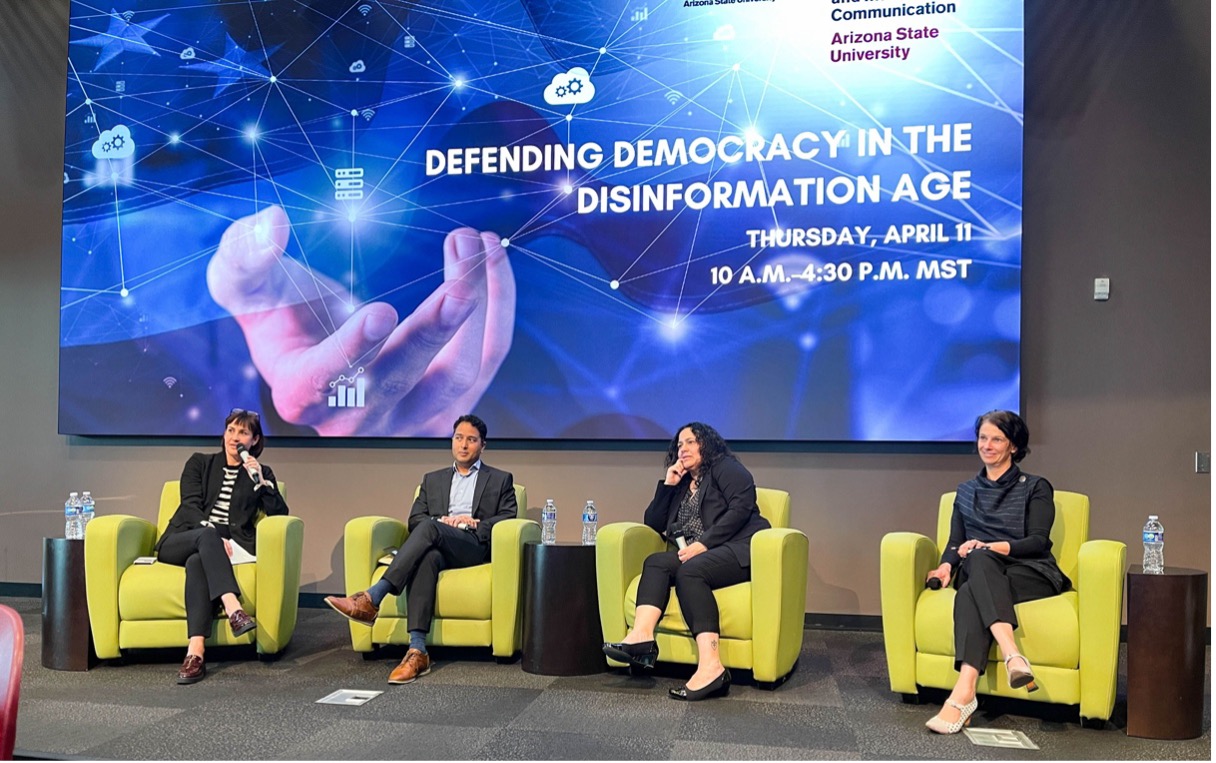Nationwide network of experts on Arizona politics, journalism, elections, and combatting misinformation convened at the Walter Cronkite School of Mass Media and Journalism in Phoenix

Watch a recording of the event HERE
The McCain Institute at Arizona State University (ASU) co-hosted “Defending Democracy in the Disinformation Age,” an event uniting community leaders to discuss technology’s impact on American democracy and disinformation’s impact on vulnerable communities.
“Senator John McCain, proud son of this great state, was very focused on democracy here in the United States, but also democracy and human rights around the world.” said Director for Democracy Programs Paul Fagan. “All eyes will be on Arizona and a few other states these next few months, which is why we’re discussing foreign election interference, polarization, the impact of disinformation on vulnerable communities, and local journalism.”
For decades, technology has fostered the advancement of freedom, transparency, and liberty. The more technology has been employed in elections and allowed people to access information, the more democracy benefitted. Yet, over time, technology also became a tool to undermine democracy. To address these threats, the McCain Institute and the Cronkite School launched a task force on Defeating Disinformation Attacks on U.S. Democracy. Yesterday’s event focused on the impact of social media on democracy, the decline of local journalism, technology regulation, Arizona and local elections, and disinformation’s impact on veterans and the military community.
“A healthy democracy, as I’ve said, relies on the free flow of reliable, accurate information,” said Walter Cronkite School of Mass Media and Journalism Dean Battinto Batts Jr. “The journalism industry, including journalism schools, play an essential role in helping people build media and literacy skills.”
“What is so important about media literacy is that it kind of goes beyond just identifying if something is true or false; it really looks at a broader understanding of the media landscape,” said National Association for Media Literacy Education Executive Director Michelle Ciulla Lipkin. “We need to build in more empathetic conversations and more understanding around these communities that really are vulnerable.”
“With the growing use of misinformation campaigns in the digital age, creating safeguards for vulnerable populations is essential for a more resilient society. When I look at foreign interference… it’s just slow modifications of the narrative over time,” said Arizona State University Professor Dr. Joshua Garland. “In an instance where a non-shared reality exists, common ground is impossible because of a polluted information environment. Teaching citizens how to counter false narratives and recognize disinformation empowers communities working towards a more informed society.”
The McCain Institute works across the political spectrum to sustain and deepen our democratic institutions and practices. Learn more about the McCain Institute’s Democracy Programs HERE.